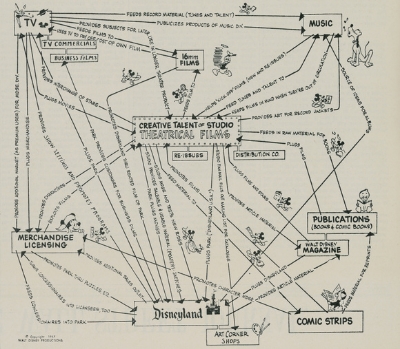Stuff The Internet Says On Scalability For August 7th, 2015
 Friday, August 7, 2015 at 8:56AM
Friday, August 7, 2015 at 8:56AM Hey, it's HighScalability time:
- $10 billion: Microsoft data center spend per year; 1: hours from London to New York at mach 4.5; 1+: million Facebook requests per second; 25TB: raw data collected per day at Criteo; 1440: minutes in a day; 2.76: farthest distance a human eye can detect a candle flame in kilometers.
- Quotable Quotes:
- @drunkcod: IT is a cost center you say? Ok, let's shut all the servers down until you figure out what part of revenue we contribute to.
- Beacon 23: I’m here because they ain’t made a computer yet that won’t do something stupid one time out of a hundred trillion. Seems like good odds, but when computers are doing trillions of things a day, that means a whole lot of stupid.
- @johnrobb: China factory: Went from 650 employees to 60 w/ robots. 3x production increase. 1/5th defect rate.
- @twotribes: "Metrics are the internet’s heroin and we’re a bunch of junkies mainlining that black tar straight into the jugular of our organizations."
- @javame: @adrianco I've seen a 2Tb erlang monolith and I don't want to see that again cc/@martinfowler
- @micahjay1: Thinking about @a16z podcast about bio v IT ventures. Having done both, big diff is cost to get started and burn rate. No AWS in bio...yet
- @0xced: XML: 1996 XLink: 1997 XML-RPC: 1998 XML Schema: 1998 JSON: 2001 JSON-LD: 2010 SON-RPC: 2005 JSON Schema: 2009
- Inside the failure of Google+: What people failed to understand was Facebook had network effects. It’s like you have this grungy night club and people are having a good time and you build something next door that’s shiny and new, and technically better in some ways, but who wants to leave? People didn't need another version of Facebook.
- @bdu_p: Old age and treachery will beat youth and skill every time. A failed attempt to replace unix grep
- The New World looks a lot like the old Moscow. The Master of Disguise: My Secret Life in the CIA: we assume constant surveillance. This saturation level of surveillance, which far surpassed anything Western intelligence services attempted in their own democratic societies, had greatly constrained CIA operations in Moscow for decades.
- How Netflix made their website startup time 70% faster. They removed a lot of server side complexity by moving to mostly client side rendering. Java, Tomcat, Struts, and Tiles were replaced with Node.js and React.js. They call this Universal JavaScript, JavaScript on the server side and the client side. "Using Universal JavaScript means the rendering logic is simply passed down to the client." Only a bootstrap view is rendered on the server with everything else rendered incrementally on the client.
- How Facebook fights spam with Haskell. Haskell is used as an expressive, latency sensitive rules engine. Sitting at the front of the ingestion point pipeline, it synchronously handles every single write request to Facebook and Instagram. That's more than one million requests per second. So not so slow. Haskell works well because it's a purely functional strongly typed language, supports hot swapping, supports implicit concurrency, performs well, and supports interactive development. Haskell is not used for the entire stack however. It's sandwiched. On the top there's C++ to process messages and on the bottom there's C++ client code interacts with other services. Key design decision: rules can't make writes, which means an abstract syntax tree of fetches can be overlapped and batched.
- You know how kids these days don't know the basics, like how eggs come from horses or that milk comes from chickens? The disassociation disorder continues. Now Millions of Facebook users have no idea they’re using the internet: A while back, a highly-educated friend and I were driving through an area that had a lot of data centers. She asked me what all of those gigantic blocks of buildings contained. I told her that they were mostly filled with many servers that were used to host all sorts of internet services. It completely blew her mind. She had no idea that the services that she and billions of others used on their phones actually required millions and millions of computers to transmit and process the data.
- History rererepeats itself. Serialization is still evil. Improving Facebook's performance on Android with FlatBuffers: It took 35 ms to parse a JSON stream of 20 KB...A JSON parser needs to build a field mappings before it can start parsing, which can take 100 ms to 200 ms...FlatBuffers is a data format that removes the need for data transformation between storage and the UI...Story load time from disk cache is reduced from 35 ms to 4 ms per story...Transient memory allocations are reduced by 75 percent...Cold start time is improved by 10-15 percent.
Don't miss all that the Internet has to say on Scalability, click below and become eventually consistent with all scalability knowledge (which means this post has many more items to read so please keep on reading)...




















